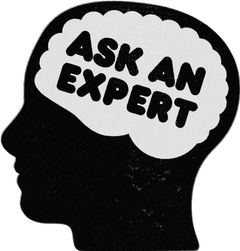The day’s biggest questions answered by the people who actually know WTF they’re talking about.
Advertisement
Advertisement
Barry Chase: I looked at the complaint. They’re arguing that there are some torts, civil wrongs, which have happened here. I think there may be some validity to part of it, and I think some of it will get bounced. I should say here that I’m not an Ohio lawyer, but it’s a little weird in that it doesn’t cite or mention Ohio law or Ohio statute.
Advertisement
Legal standards for some of these claims will differ state to state. There was no such thing as the right to personality in American law until an article in the Harvard Law Review, where I went by the way. A privacy right has grown over time into, among other things, the property right that a celebrity has in his or her image. In other words, you can’t slap a picture of Fred Astaire as your logo if you own a dance company. If the estate statute says that these property rights go on beyond death, then you can’t do it in that state. You can’t do it at all, because most things now are global on the internet. The right of publicity is most strongly applied where you have value—where that property right has value and where someone would want to use it to sell something. So you and I have much less of a celebrity property, right? Although the courts don’t often put it this way, the fact of the matter is that Arnold Schwarzenegger has a lot more value in his image than I do. So you can’t just appropriate his image and use it for commercial purposes. For sure. Does it matter how those images are used, though?
Here’s where we get into what’s interesting to me about this case. Music is fully protected by the First Amendment, just as a book or a painting or a photograph or a video or a movie would be. Even leaving aside the videos that he’s got, music in general has very robust First Amendment protection as an art form. Courts aren’t allowed, theoretically, to get into what’s good art and what’s bad art. I think that these cops will have a very tough time getting damages because of whatever the musical selections have done.
Advertisement
They’ve raised them—they’ve raised the right of privacy in terms of false light, defamation. They say they’ve had death threats. Maybe so, but if I were a court, I’d say, ‘Well, that’s not unusual for a cop.’ First of all, are they true threats, as the law calls them? In that it’s somebody who’s local, somebody that we can investigate and see whether they’ve ever caused any violent acts in the past, etc, etc. Those are true threats. If it’s somebody from California threatening you and you’re in Ohio—no, probably not. So I don’t know how well they’ll do with those.
Advertisement
I would say here that he’s probably on thin ice. They might prevail if he’s in the business of selling T-shirts with their image on them. There is one defense where he may get away with even this, and that is the parody defense. If you are commenting on the thing that you are ripping off from someone, you can do that. It is one of the things that’s protected by the First Amendment, because satire or parody is a powerful way of communicating, say the court—and it’s true. Here, he’s used Peter Griffin—without, I’m sure, the permission of Seth MacFarlane, so that normally would be a copyright violation. But he may get away with using Peter Griffin, and he may get away with using the sheriff, because it is parody, it is satire, and it’s criticism. Criticism of law enforcement is certainly protected by the First Amendment. There are a lot of recent cases, for example, where the cops tried to arrest someone who was videoing an arrest that took place right in front of her front lawn. The cops arrested her for interfering with police proceedings, and of course, the police lost. Citizens have a right to observe, and if it’s in public, to record what the police are doing, to or for us.
Advertisement
I’ve seen a lot of scenes where they’re sitting at the table with… I forgot his wife’s name… Lois, with the weird kids they’ve got and the daughter is the only normal person and she’s the one that no one likes. But I don’t remember that he was shoving like, you know, 10 eggs into his mouth. So I don’t know if that will protect him. It would protect him more if Peter Griffin were known for his gluttony. Because that’s what he’s suggesting in that T-shirt: That it was a guy who was in the middle of performing his duties, casting longing looks at the lemon pound cake. When I talked to Afroman, he told me he’d only sold around 50 of these shirts. Does that make a difference in terms of making them “commercial” versus “art”?
It really shouldn’t, in the law, make a difference. In other words, art should not become non-art simply because it is successful commercially. But that seems to be how the law has set things up. With that Three Stooges thing, for example, as opposed to the Tiger Woods case, as opposed to times where celebrity images are used satirically to sell products. If it’s a one-off painting, you get the most protection you can get, because that’s an artwork. If it’s put on something which is meant to be reproduced ad infinitum, like that T-shirt, there’s less protection. So the fact that he hasn’t sold many doesn’t matter—50 is probably enough to take it out of “art.” But it’s not enough to take it out of the parody exception. Does it make a difference that most of these photos are all screengrabs that Afroman got from the security footage of the raid?
Yeah. He owns those, by the way. Yeah, let me go through that. Because I mean, this, this is a many-splendored issue. This is a great case you sunk your teeth into. Keep in mind that this is Ohio law, which may be strange in some ways, but I would say he owns those images because it’s his camera equipment, right? And it says, to the extent anyone owns the copyright, in this image of the deputy, Afroman owns it. You can argue he’s got the copyright, even though he wasn’t holding the camera at the time. Can you show me another one of the Instagrams?Sure. Here’s one of his Instagram posts with a different deputy.
This is Quasimodo, right? Yeah. I would have a similar analysis here. I think he is criticizing the activities of the cops—wow, this guy’s got an automatic rifle, doesn’t he?Yeah—I think that’s part of the whole thing for Afroman, how aggressive the deputies were when they came to search his property.
I understand his position. So, the fact that he’s associated this guy with Quasimodo helps. Because again, that’s satire, that’s parody. That’s, that’s criticism of something, and it’s criticism of a very public interest process—these are the cops, we depend on these people. So you’re allowed to criticize them. Just to give you an idea of the hierarchy, the First Amendment protection is most robust in the political sphere. It is less robust as you go down into ordinary speech, and probably the least robust for a commercial speech. So this year, I think the Quasimodo thing really helps them. What do you make of the way IP and art and privacy are kind of clashing in this case?
There’s a lot of good talk in these cases about how our protection of intellectual property is not without cost, and the cost sometimes is privacy rights. There are costs to First Amendment protection and certainly hurt feelings. I often get inquiries about you know, “This mentally disturbed me, I’m facing ridicule from my relatives.” Well, that’s the way it is. Particularly, that’s the way it is if you have volunteered to become a public persona—and the [deputy] consented by either his position or his participation in this particular raid.

